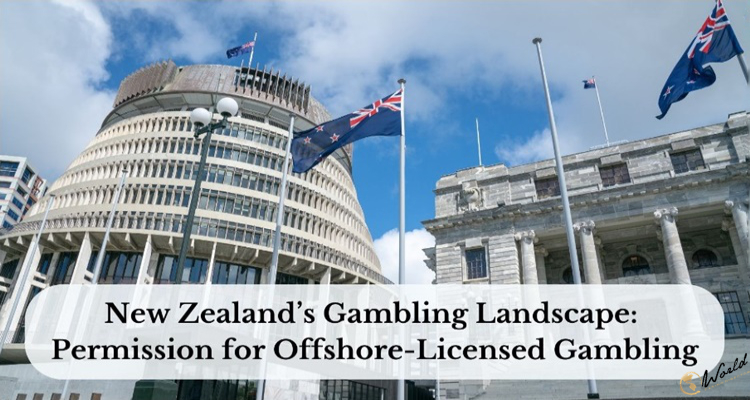Kiwis are known as passionate risk fans, so it’s not surprising this entertainment has been growing for the last few decades. The local legislation allows gambling activities in the country, making it a desired spot for casino lovers in New Zealand and beyond.
Like any other region, it has its regulations and bans, so let’s look at all the industry’s peculiarities in NZ and how recent changes will influence the overall gambling environment.
The Legal Framework of the Land-Based and Online Casino Industry
Gambling is a regulated activity in the country, but several things should be noted. Local people gamble at one of the casinos listed at Deps Online Casino in New Zealand accepting NZD currency and offering various benefits for Kiwis.
As for the land-based casinos, they can operate legally and accept NZ residents and foreign tourists. However, rules are stricter with online gambling. Virtual gaming establishments registered in New Zealand are forbidden.
On the other hand, overseas operators can enter the market. Players can gamble in foreign gambling establishments, which must still hold licensing from a responsible government body.
NZ Gambling Market: Figures & Statistics
Over 80% of Kiwis reported they’ve gambled at least once in their life. Overall, casinos are among the most popular NZ entertainment options available for residents. Statistics indicate that over $387 million was spent on casinos in 2022.
Even though the figure has decreased since 2021, when players invested over $559 million, the sum is still incredible. Moreover, locals also invested over $833 million in gaming machines in 2022. This year, the country’s gambling market is projected to reach $1.2 billion.
Regulatory Bodies and Laws Governing the Gambling Sector

The Department of Internal Affairs is the main authority regulating all gambling in the country. The body’s primary duty is to ensure all casinos in NZ operate legally and comply with the Gambling Act 2003 requirements.
This document provides all rules and regulations for existing casinos and those just beginning their activities. The law aims to get rid of illegal casinos and sportsbooks and minimise the harmful effects of gambling.
The NZ Gambling Commission is another body operating under the control of the Gambling Act 2003. The authority issues licences, specifies the conditions of their acquisition, determines appeals, and advises ministers concerning industry challenges. It’s worth noting that the NZ Gambling Commission doesn’t act like ADM, it only covers offline casinos and sportsbooks.
An Overview of Offshore-Licensed Gambling in NZ

As already mentioned, domestic online casinos are prohibited in New Zealand. However, offshore gaming establishments don’t face any restrictions. Therefore, local players can find a licensed overseas platform and enjoy slots, poker and games for real money legally.
Unsurprisingly, such gaming establishments are popular among Kiwis, as they are accessible and offer lucrative conditions for members. On the other hand, entering the country’s gambling market is beneficial for operators who don’t have to pay huge taxes. It means they can operate legally in New Zealand but don’t hold additional expenses, generating more revenue.
Current State of Offshore-Licensed Gambling
It seemed that the online gambling landscape in the country was suitable for all parties. However, there are multiple debates on this issue. According to the Ministry of Health, the problem gambling rate stands at 0.4%, but around 1.3% more players are at risk of experiencing troubles in the future.
Online casinos significantly impact this figure, as they are more accessible for players. Therefore, the government aims to initiate stricter regulations for operators, aiming to reduce the number of people suffering from gambling addiction.
The Future of Offshore-Licensed Gambling in New Zealand
The NZ government regularly initiates amendments to the gambling legislation to ensure it operates smoothly, creating a better environment for players and minimising risks. And it seems that new changes await Kiwi casino fans in the near future.
The National Party offers to implement a taxation reform, which will primarily concern offshore gaming platforms. Currently, overseas online casinos are not illegal in the country, meaning they can operate on their territory and engage local players. The amendment suggests implementing a 15% tax for every online casino registered outside NZ.
Such an approach allows additional revenue to the country’s budget, which is beneficial in the long run. However, it’s still unclear whether the amendment will be accepted. The elections will be held on 14th October 2023. Huge taxation reforms are waiting for the country if the National Party wins – and this influence will expand on the gambling market.
While the new law benefits the country’s budget, many players wouldn’t be happy if the changes are accepted. It’s predicted that the number of online casinos in the country will decrease – since not every operator is ready to pay taxes. In such an instance, users will have a smaller choice of gaming establishments. However, we still cannot predict the result as the elections were not held yet.
The Final Word
Considering the upsides and downsides of the gambling industry in New Zealand one can conclude that it plays a significant role in the country’s economy and entertainment sector, but it also raises concerns about addiction and social consequences.
New Zealanders have been passionate gamblers for centuries, and it doesn’t seem this trend will change soon. Kiwis can take advantage of both offline and online casinos: the difference is that land-based establishments are regulated by the Department of Internal Affairs, while local virtual platforms are prohibited.
However, users can enjoy offshore gaming websites, which are not considered illegal in the country. The future elections will determine the destiny of online casinos, as the National Party has initiated new taxation laws, which will concern the gambling industry.
